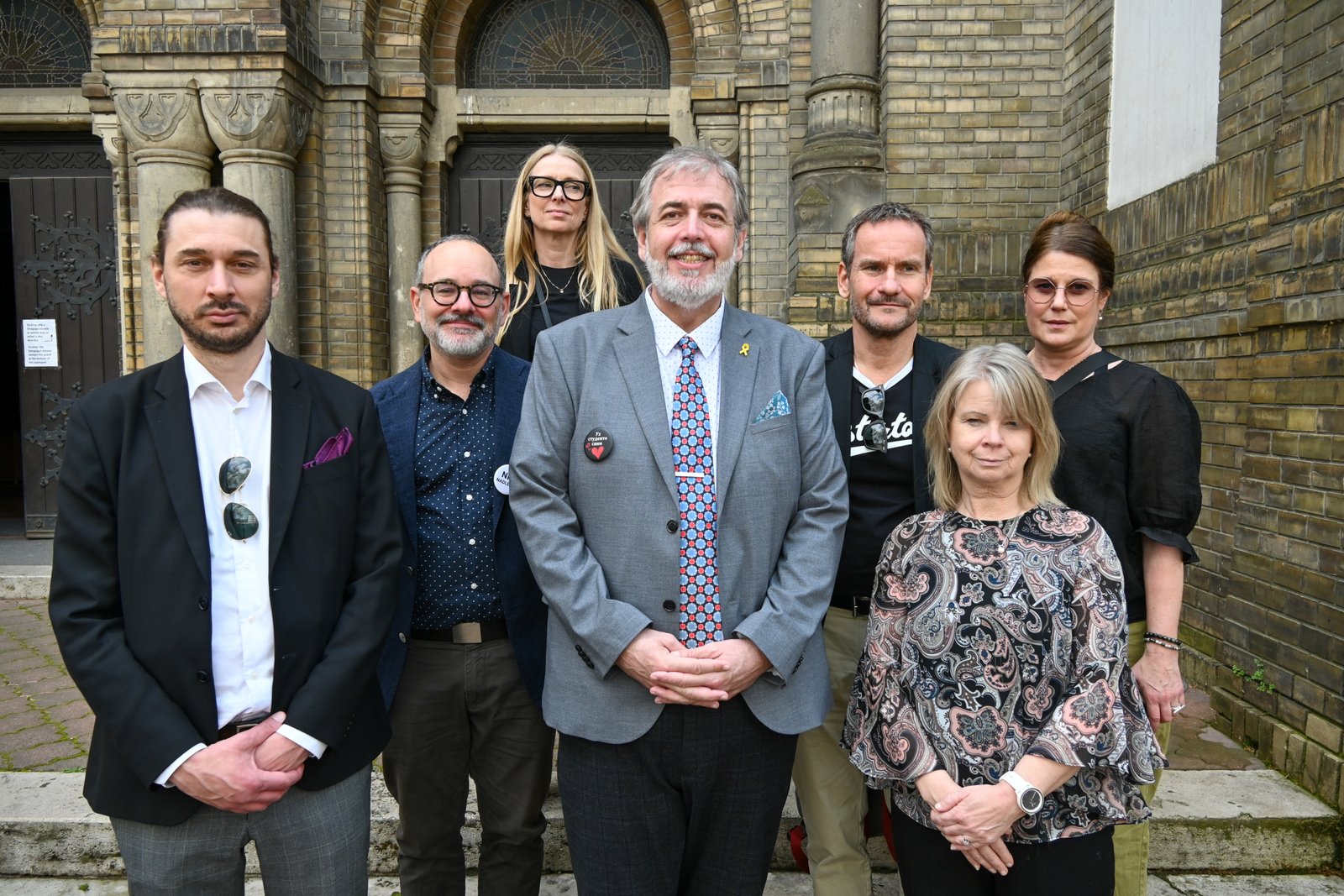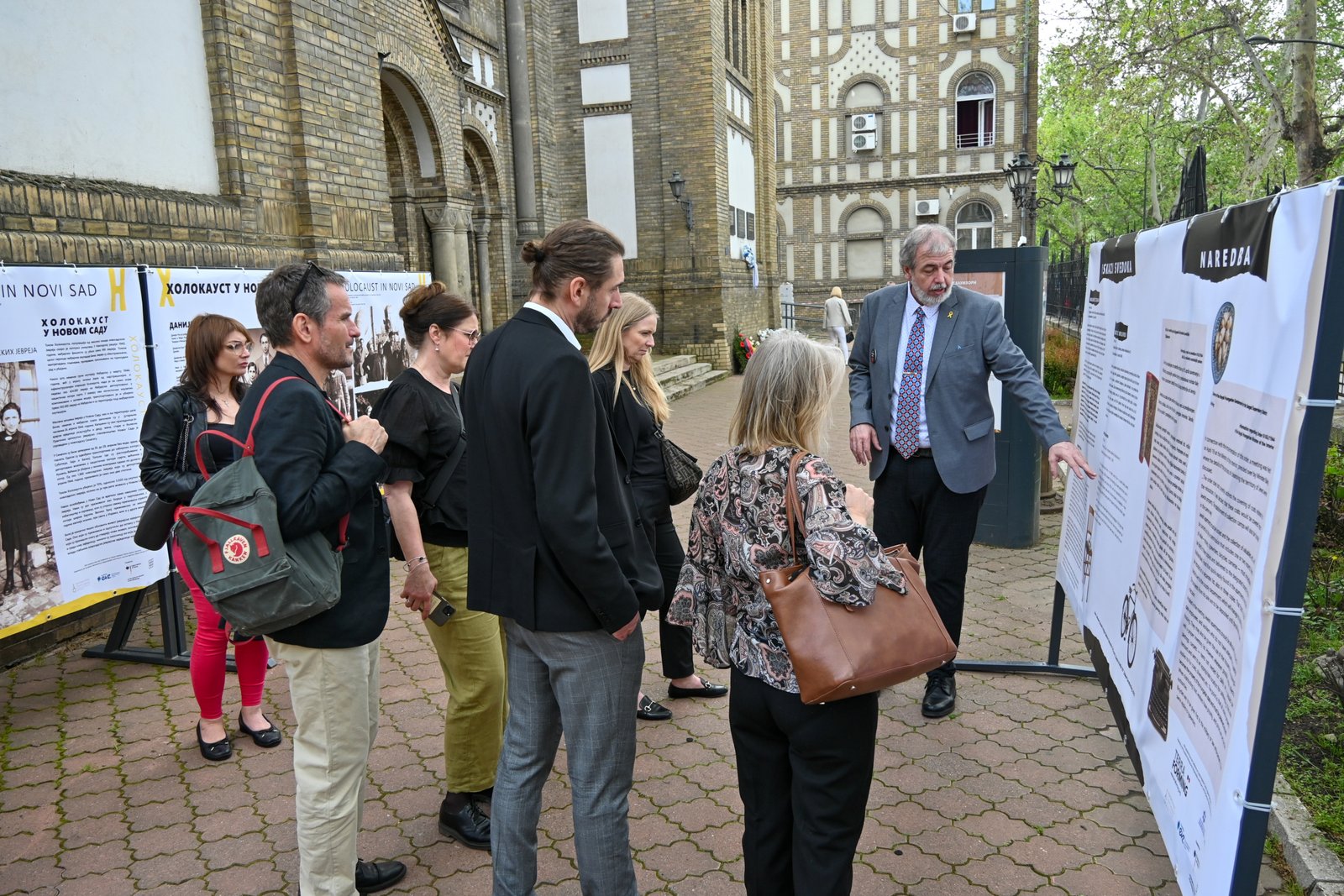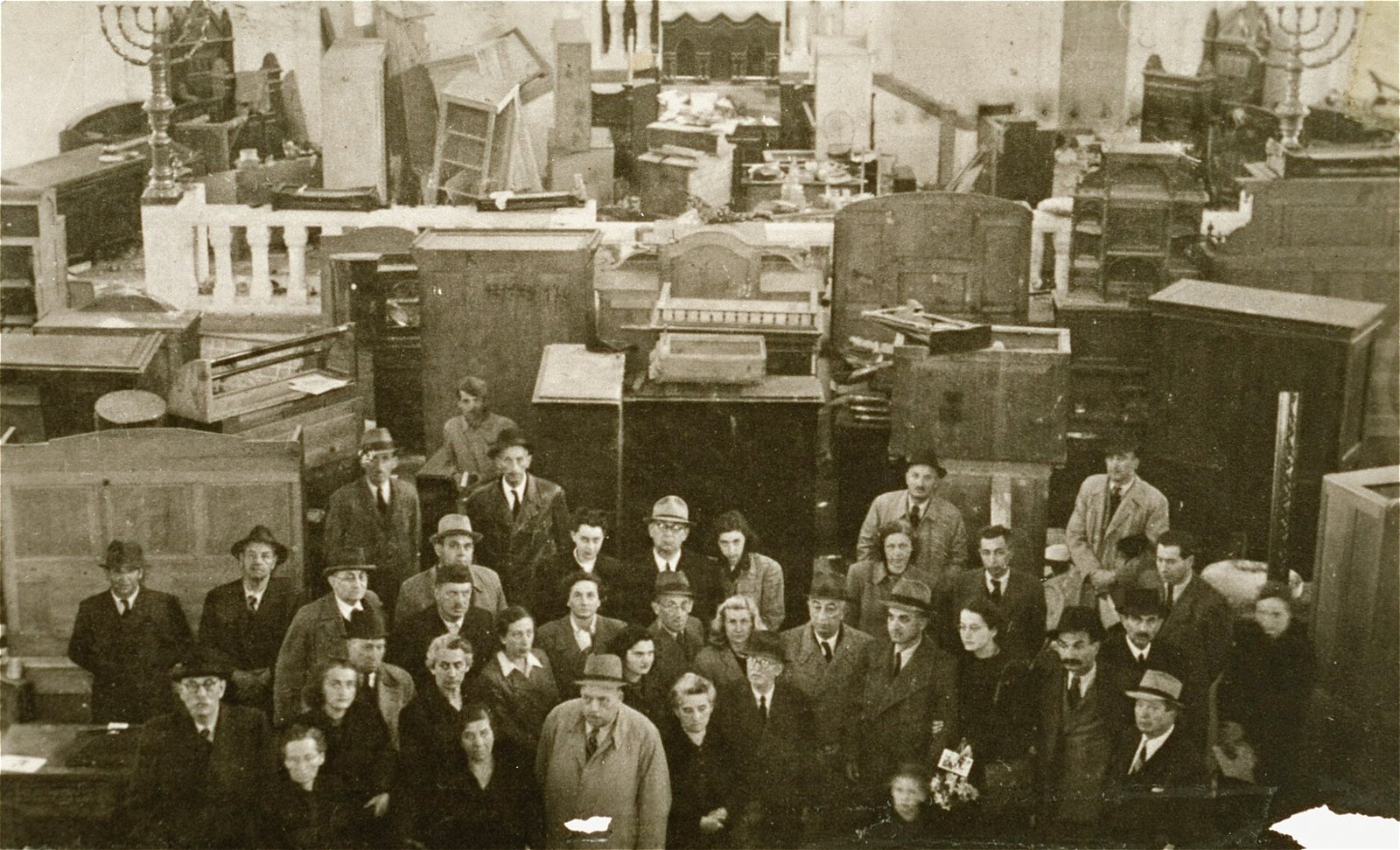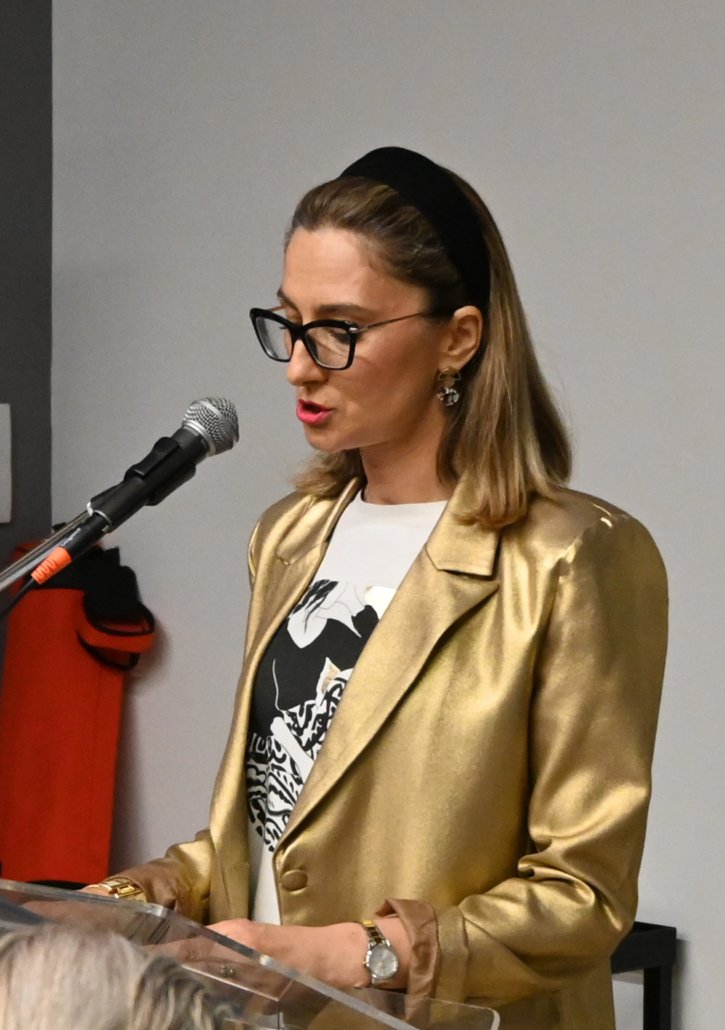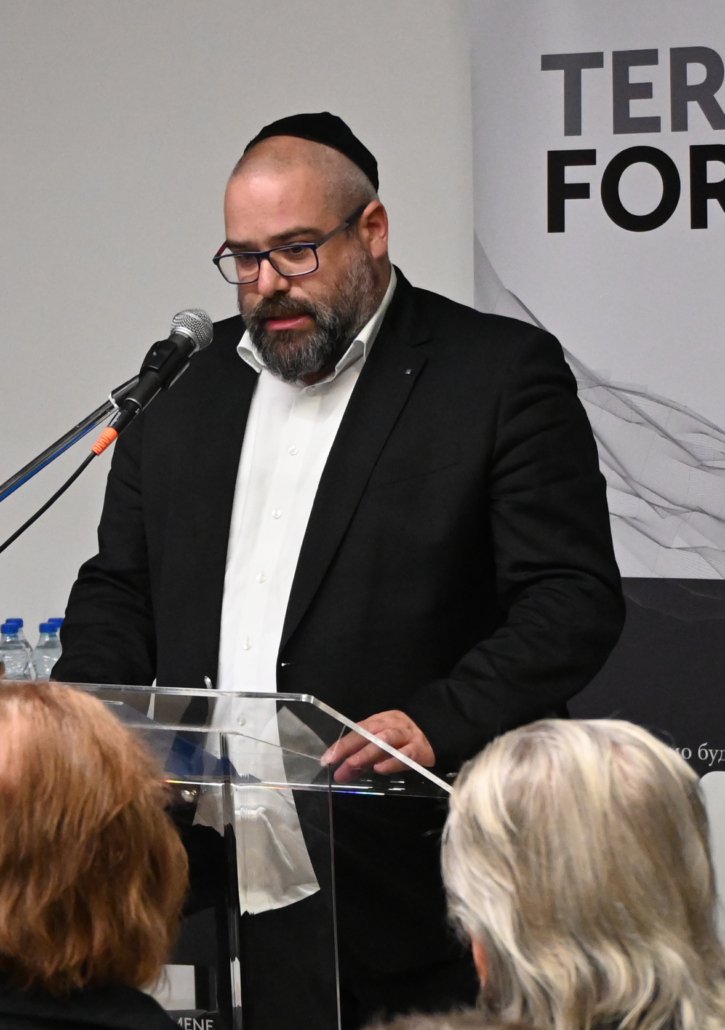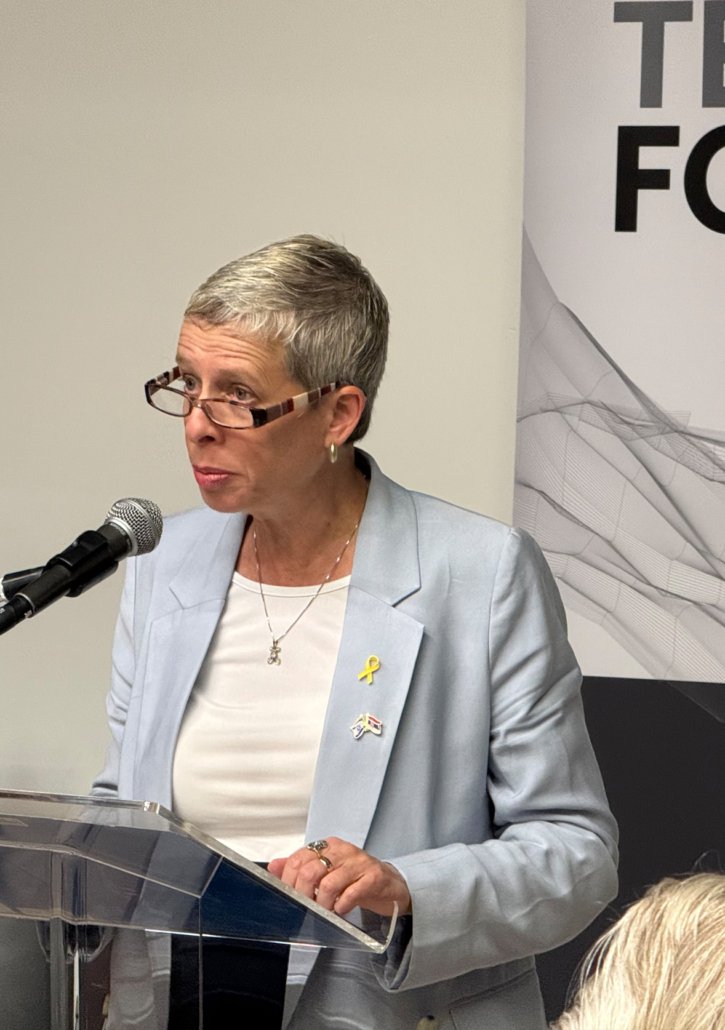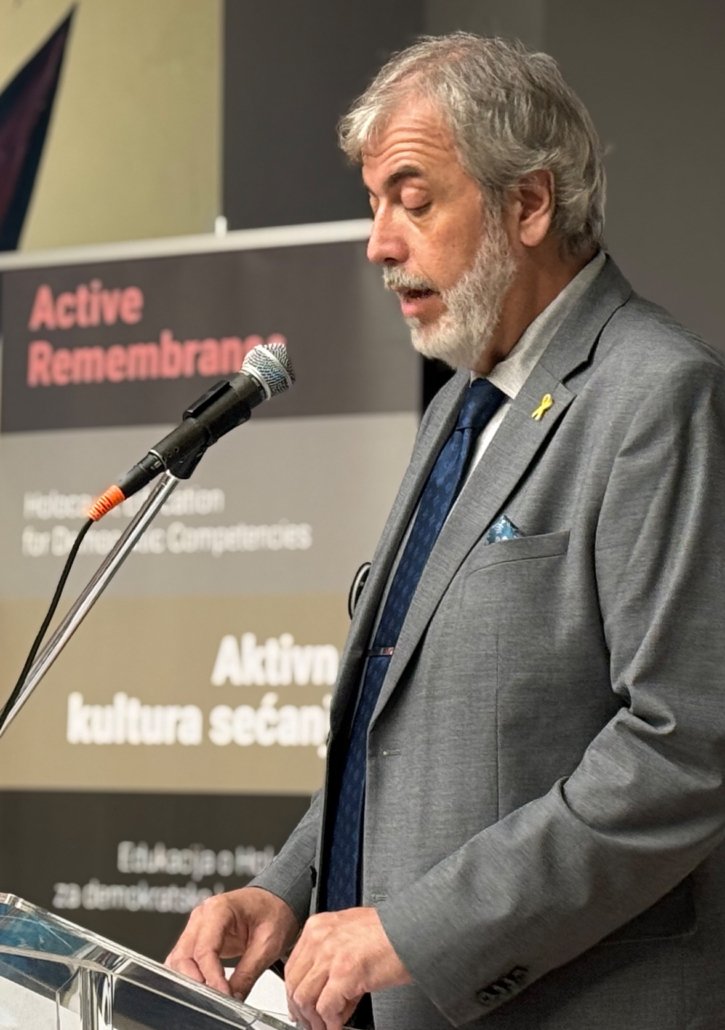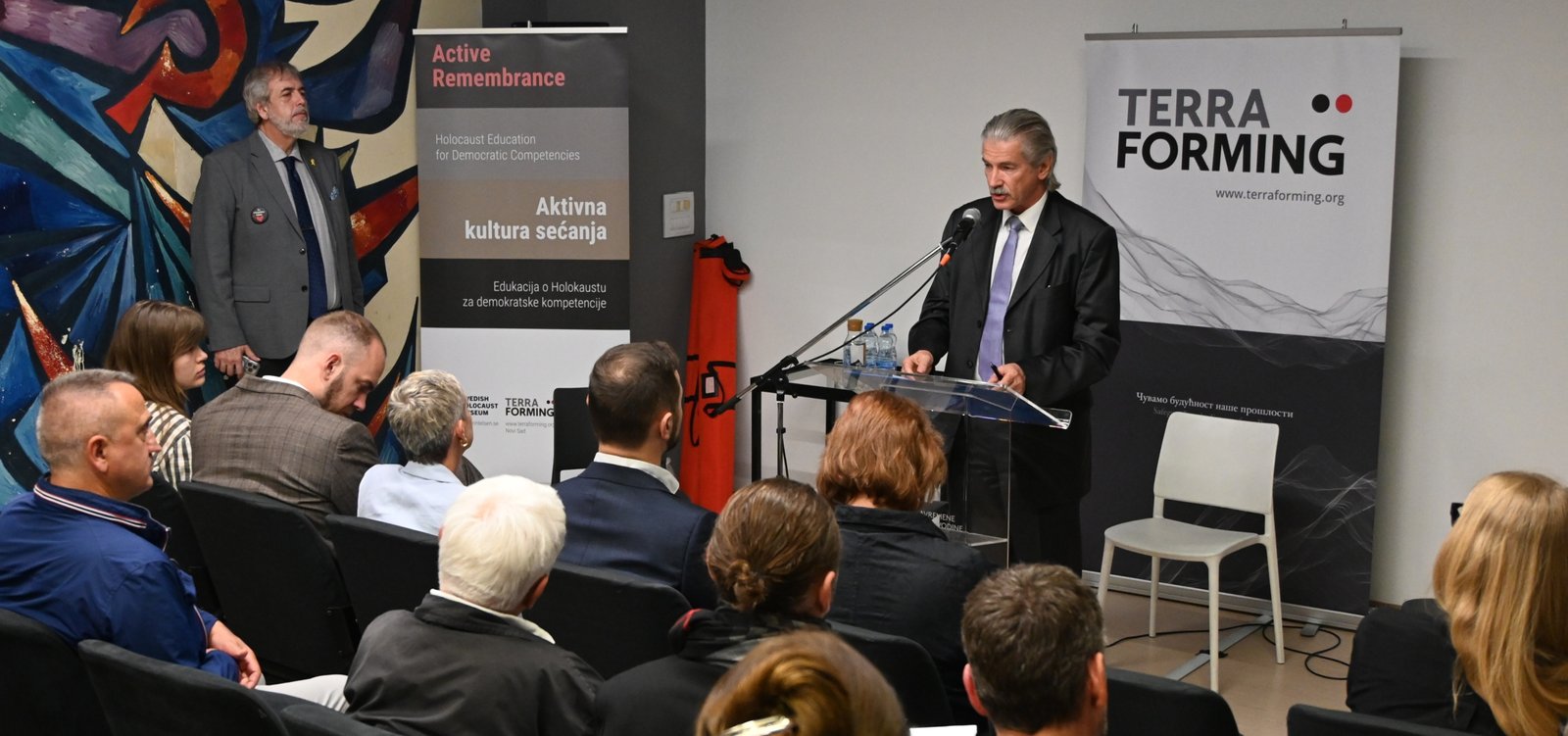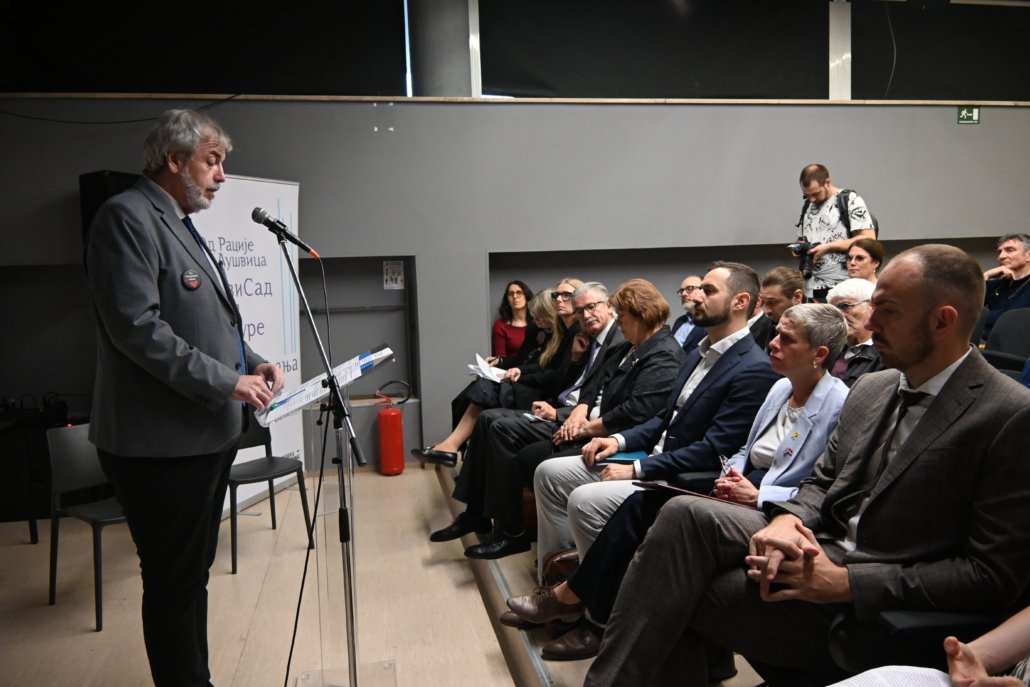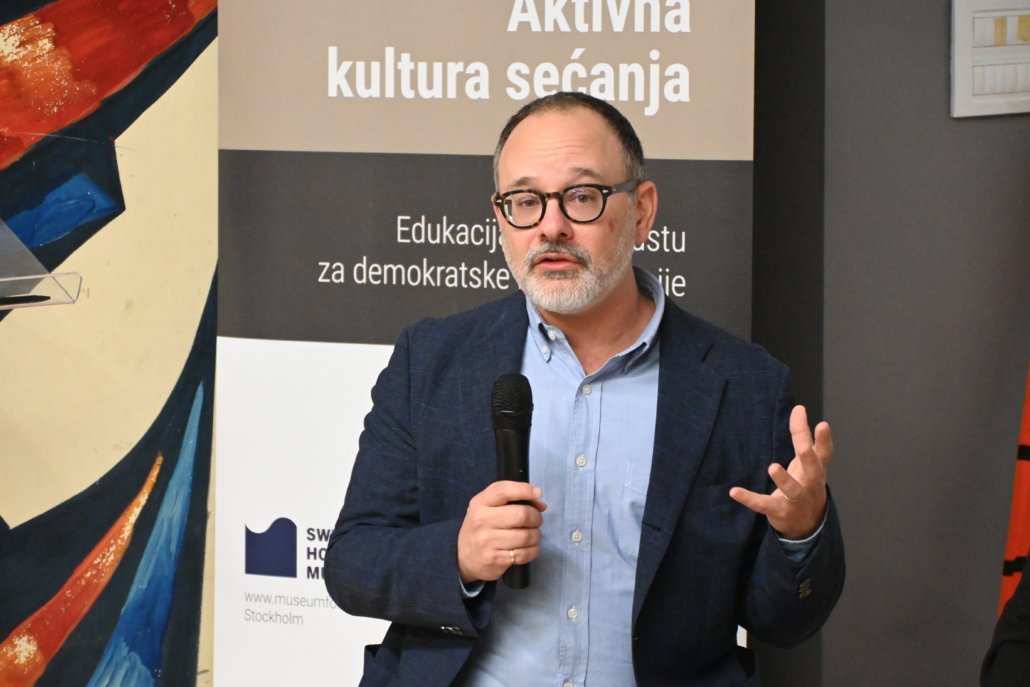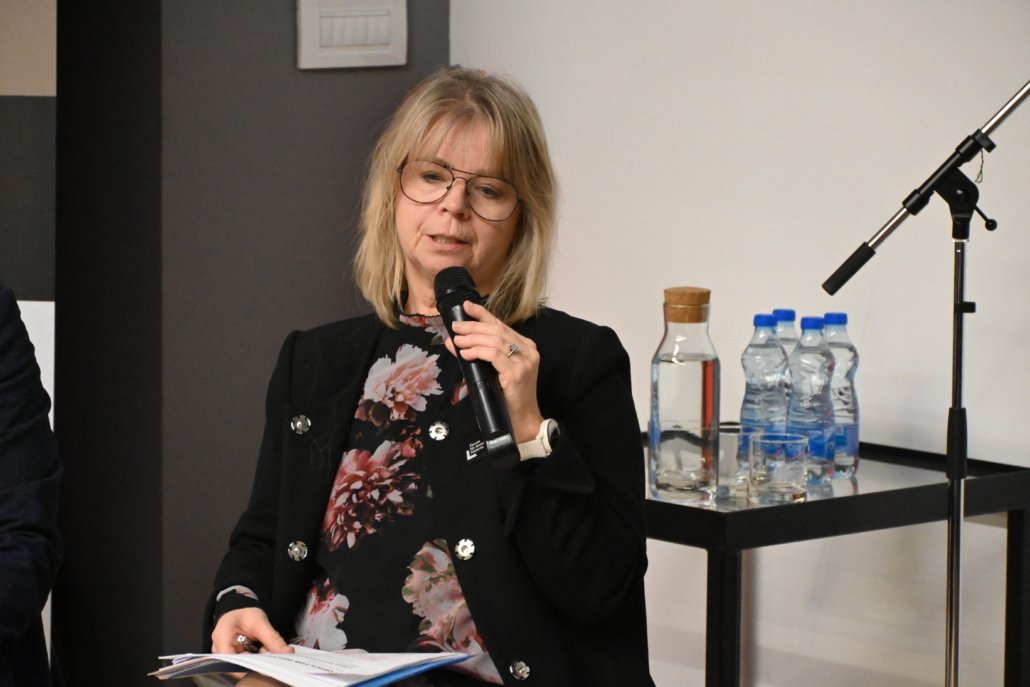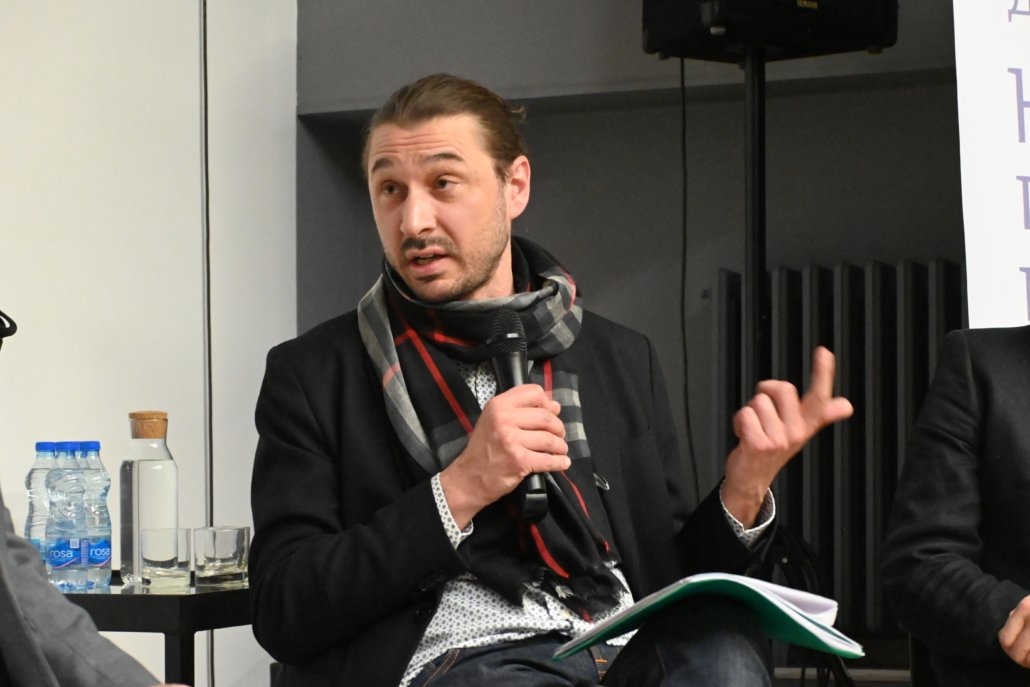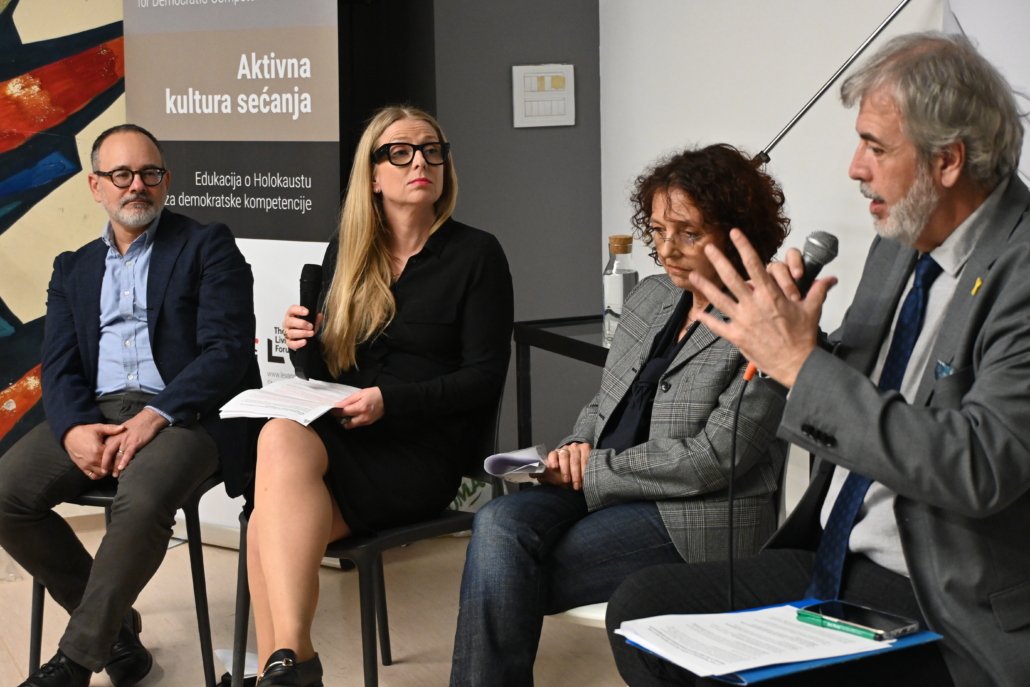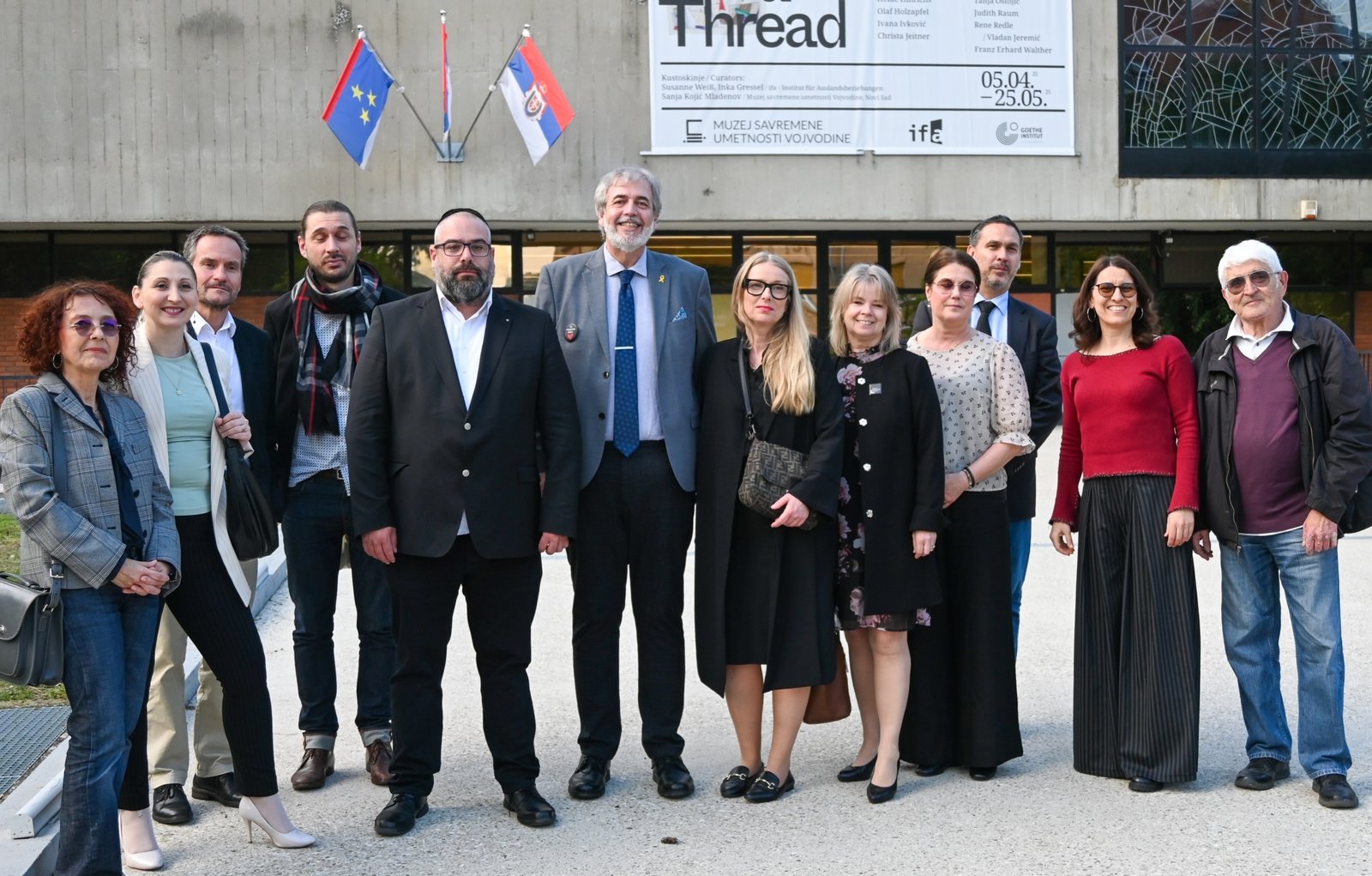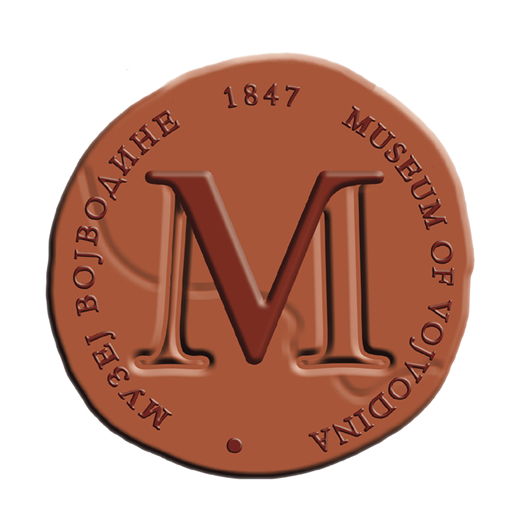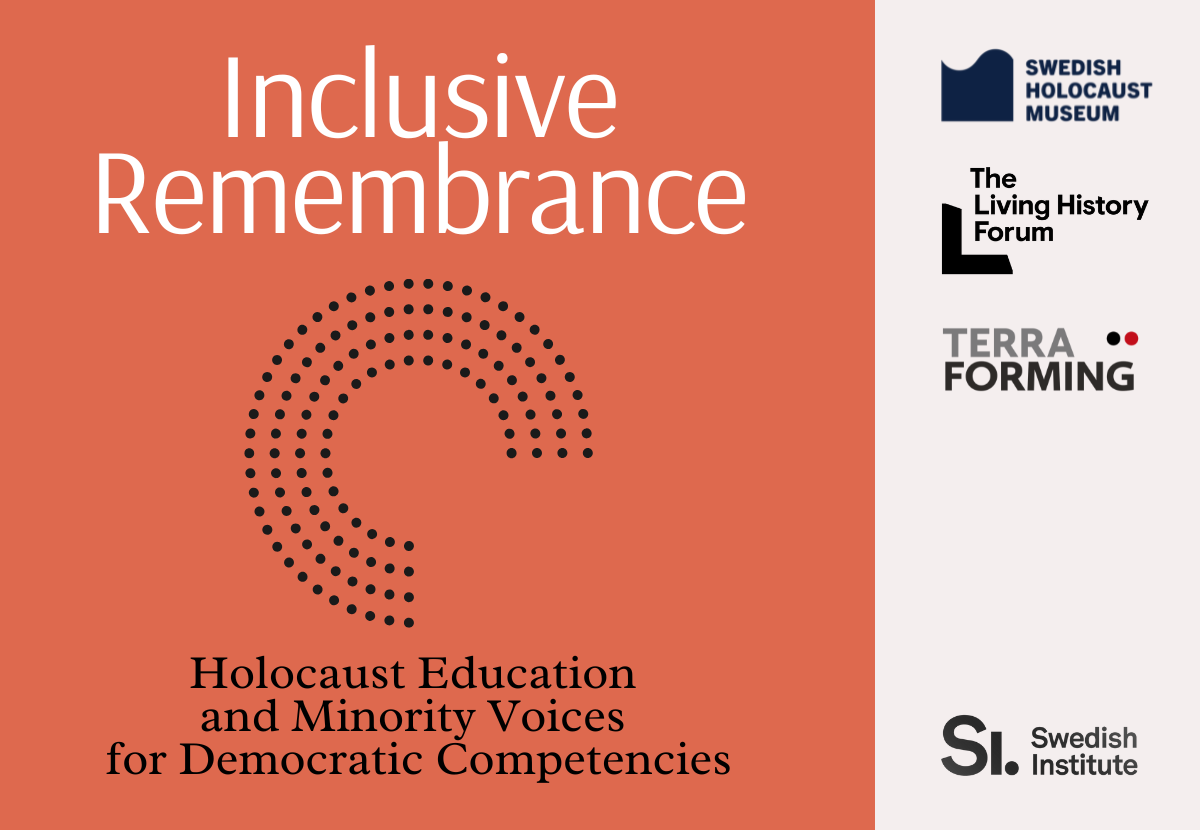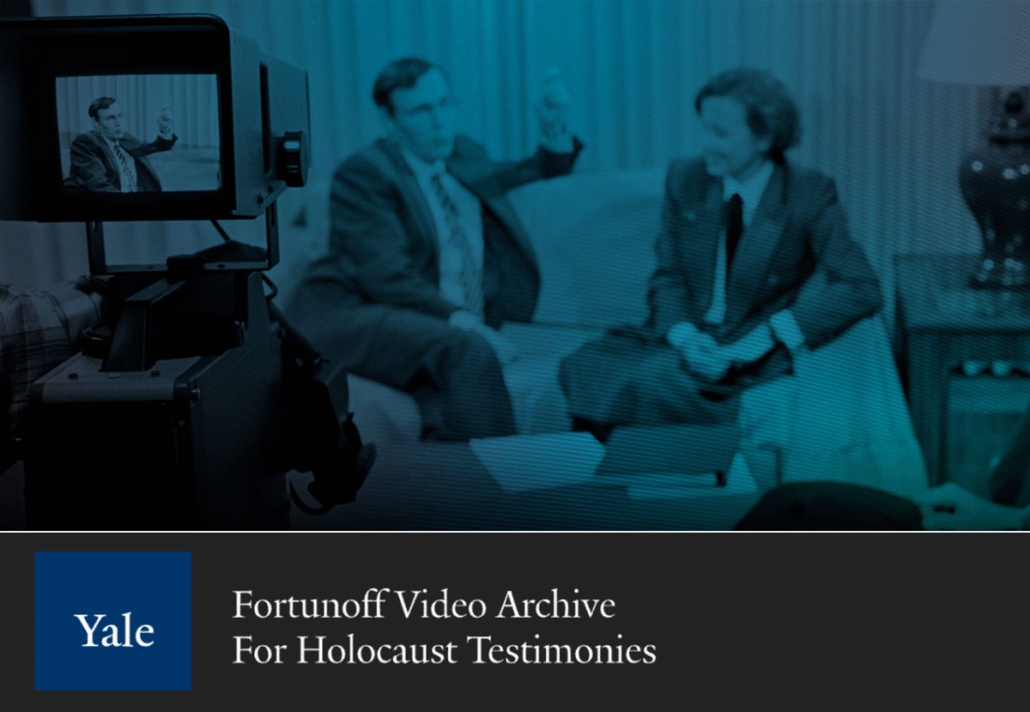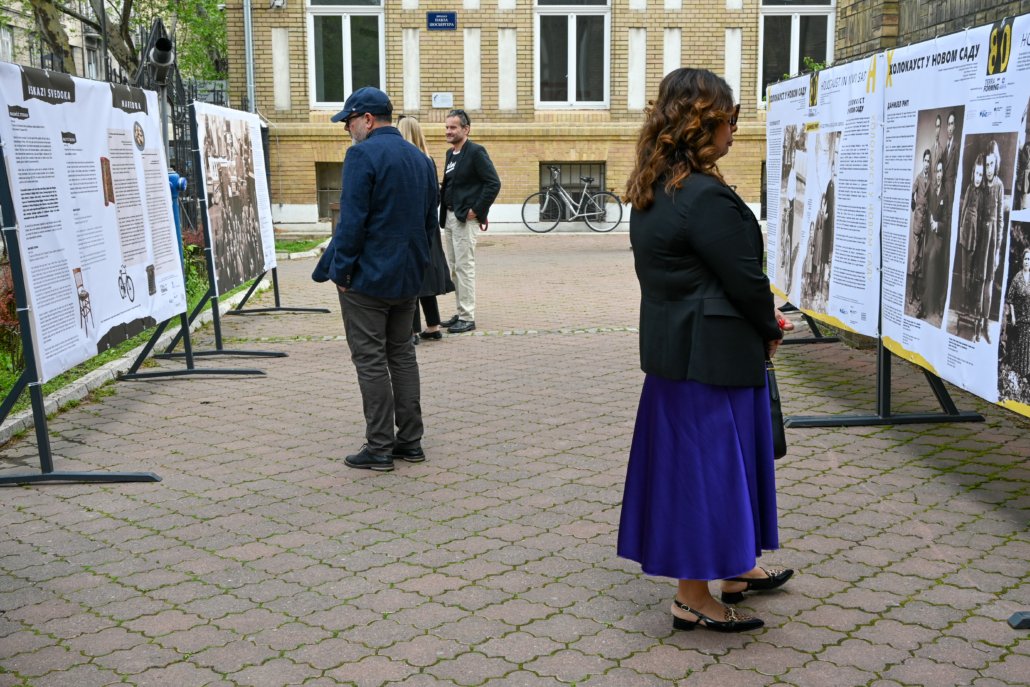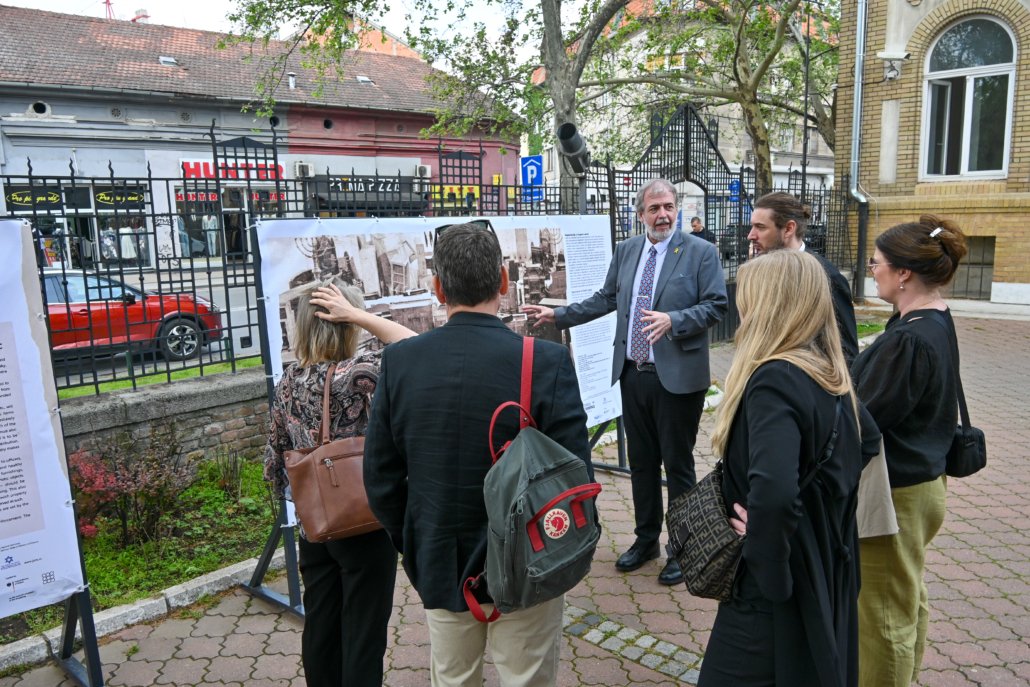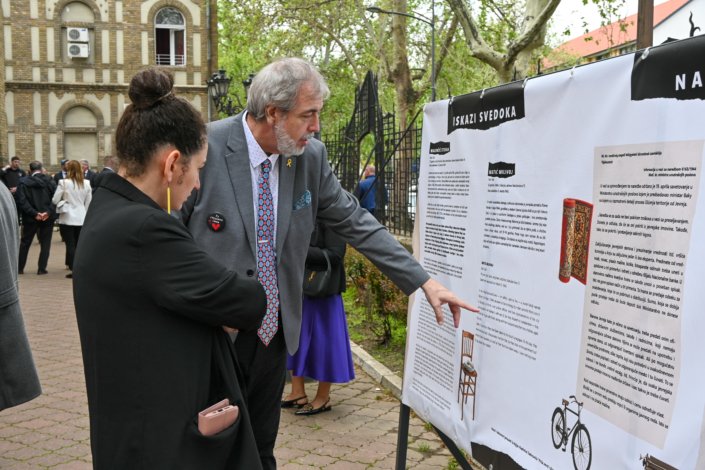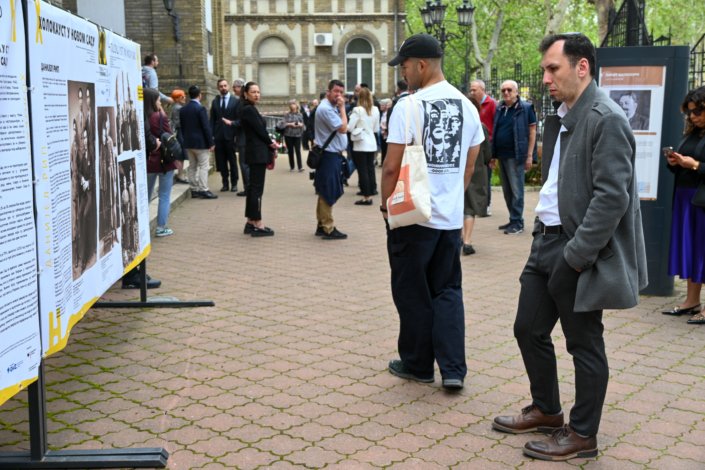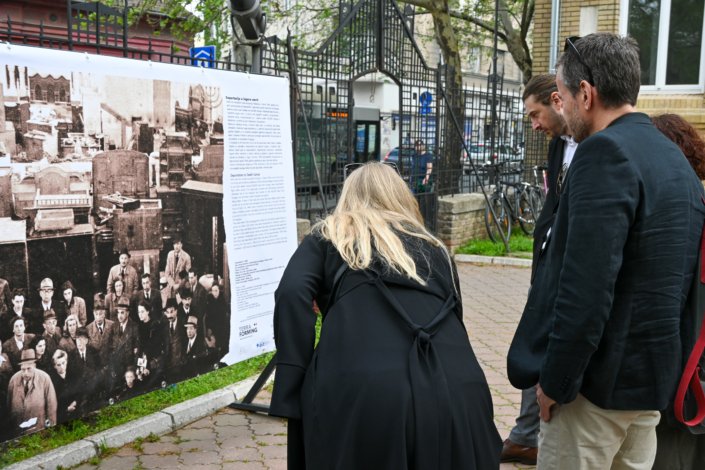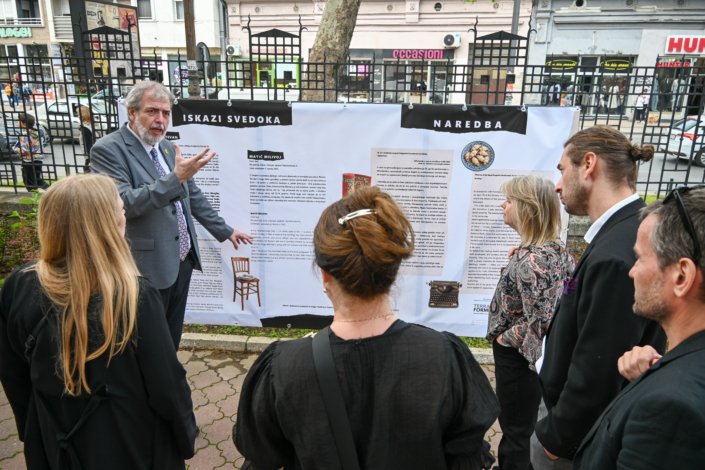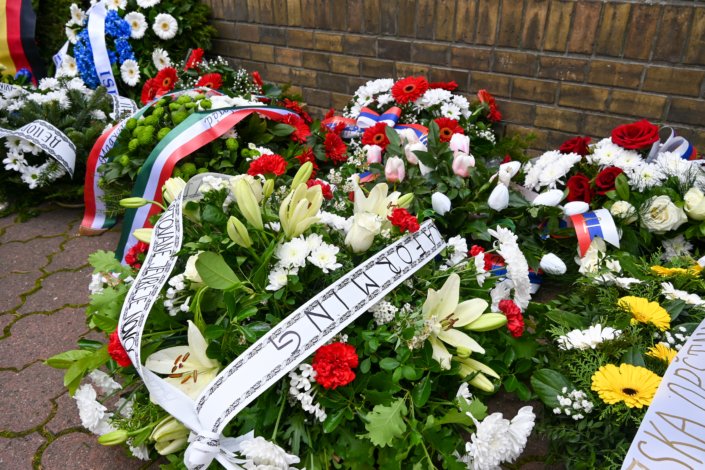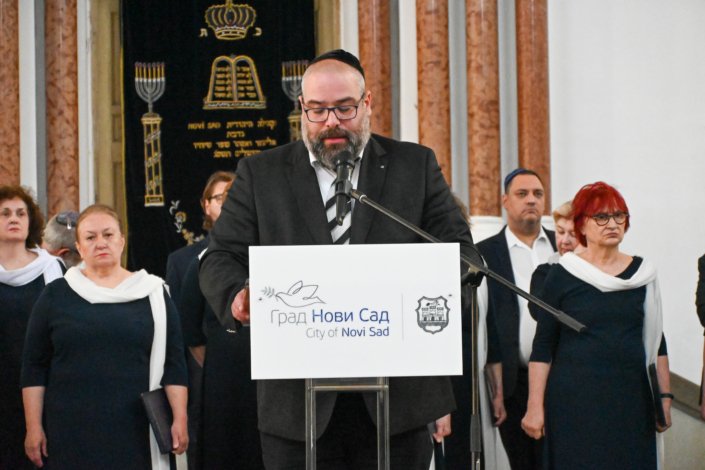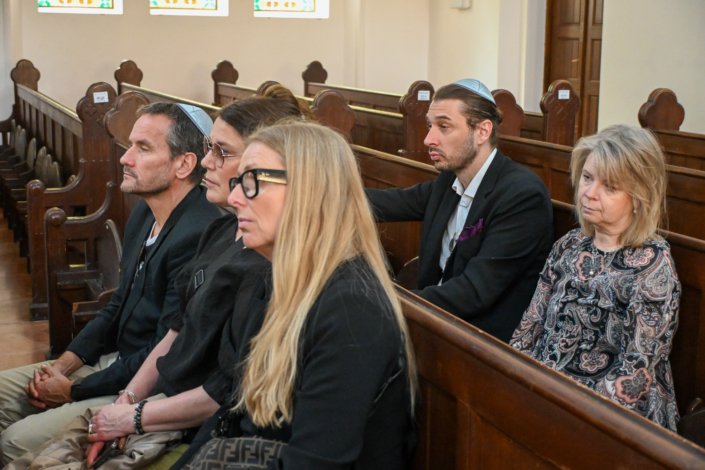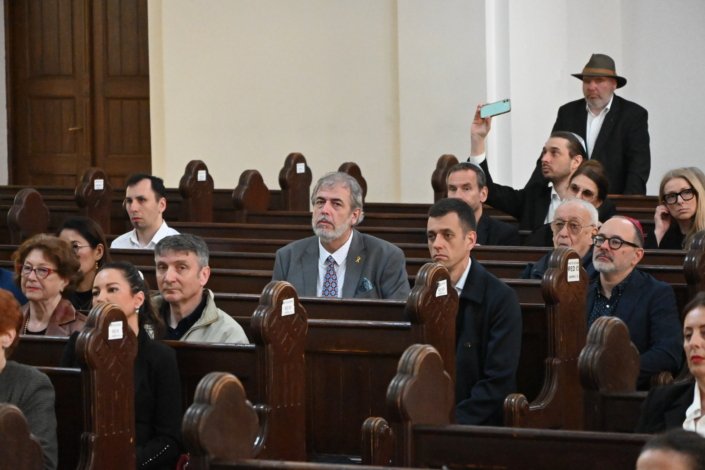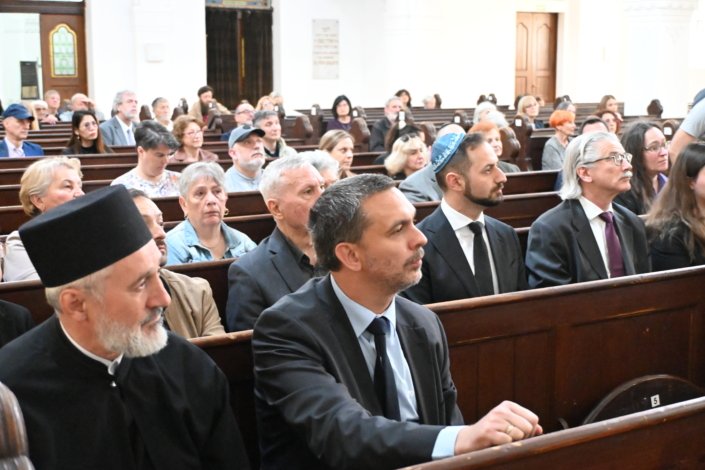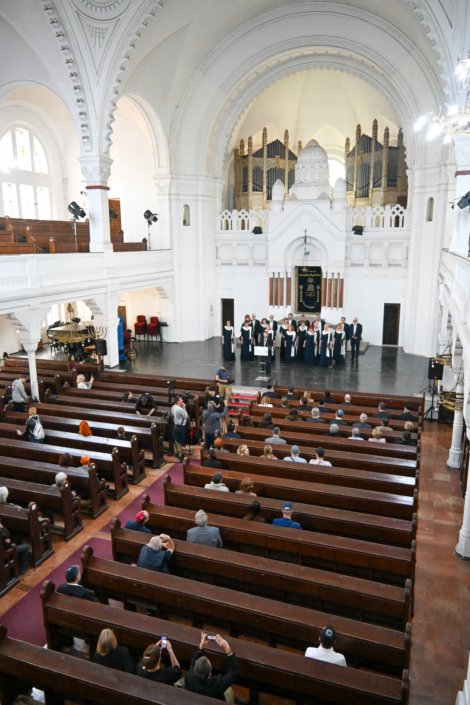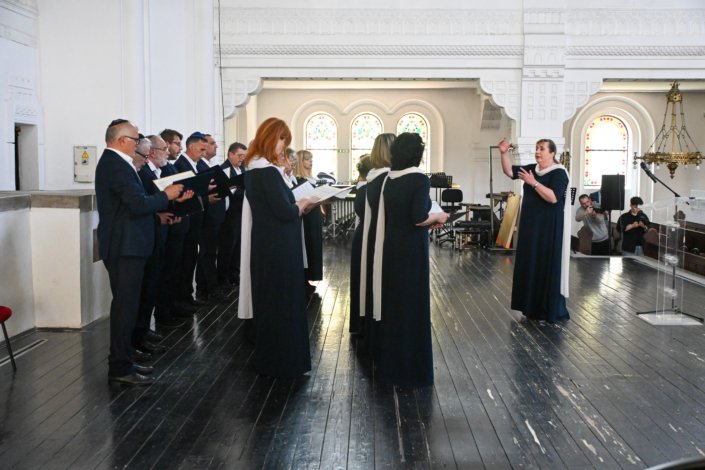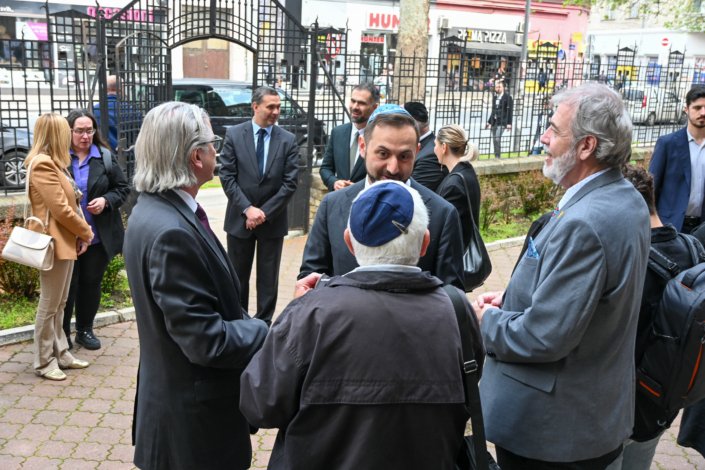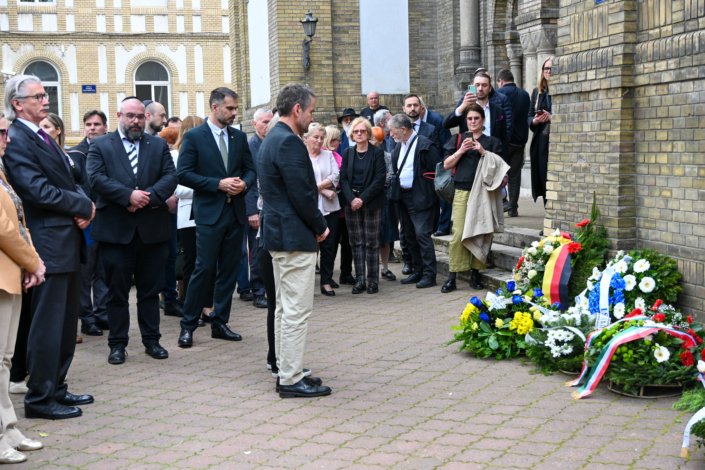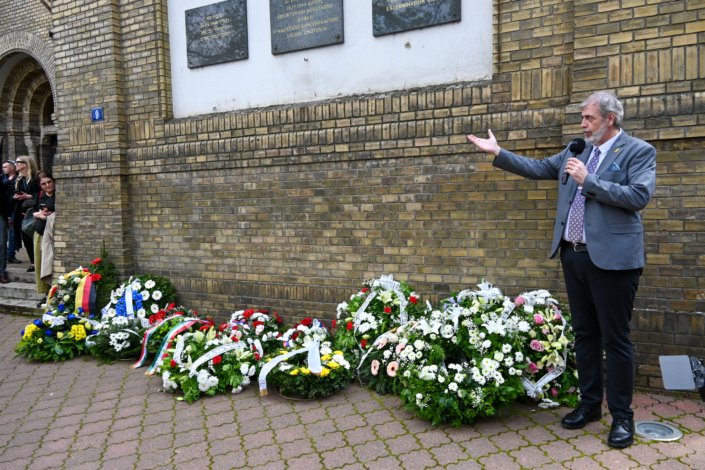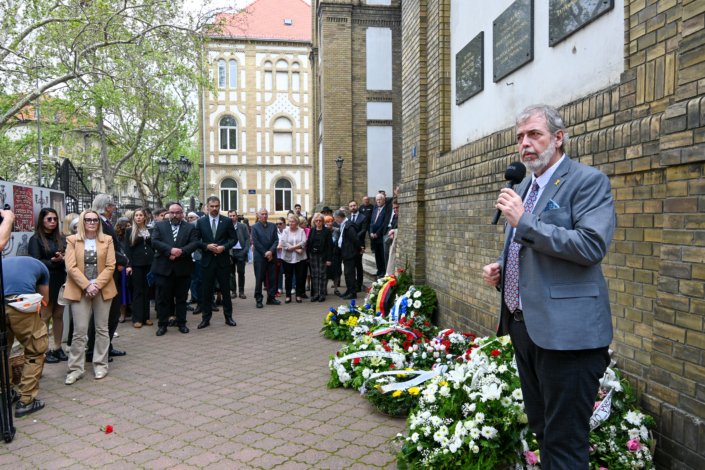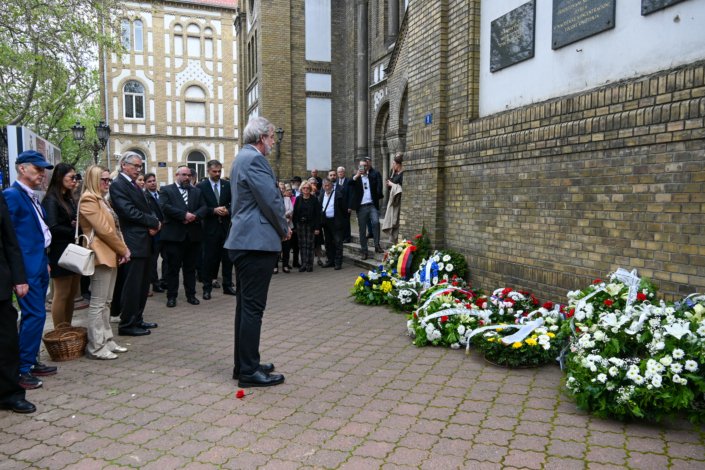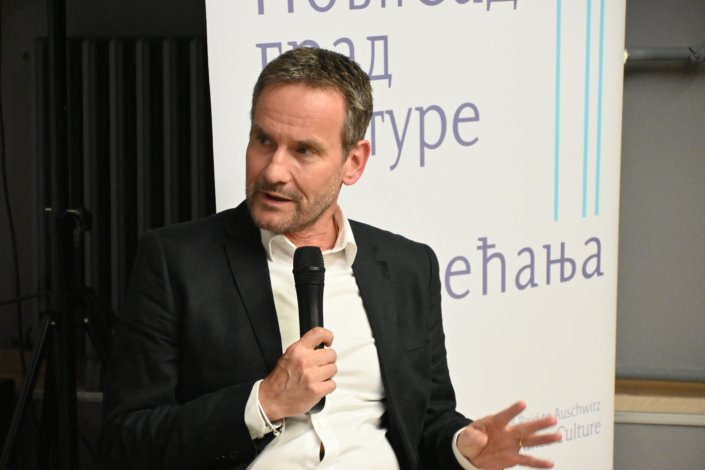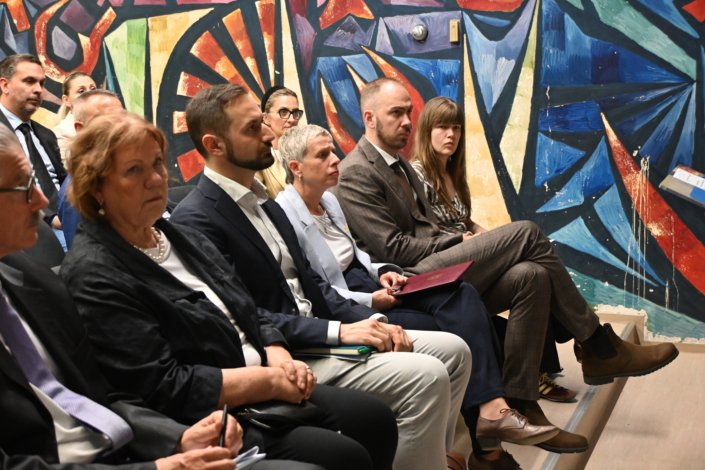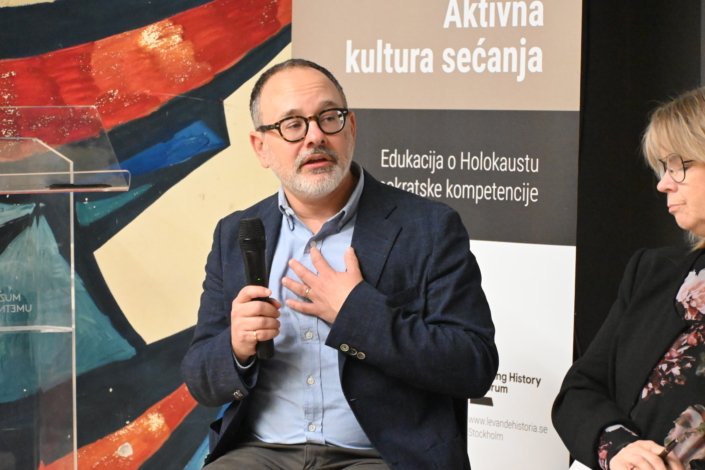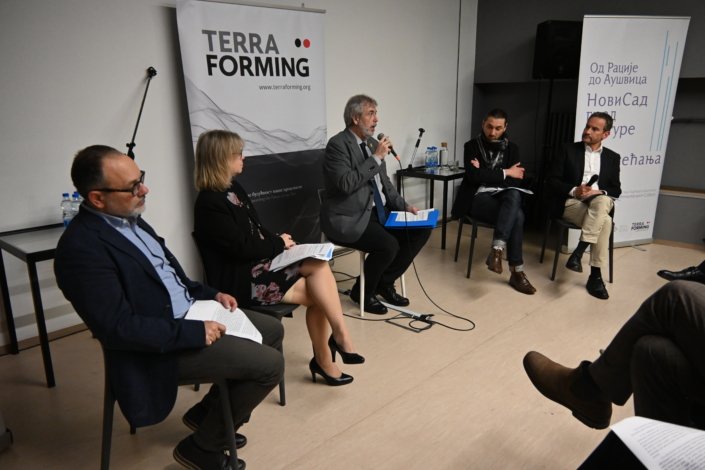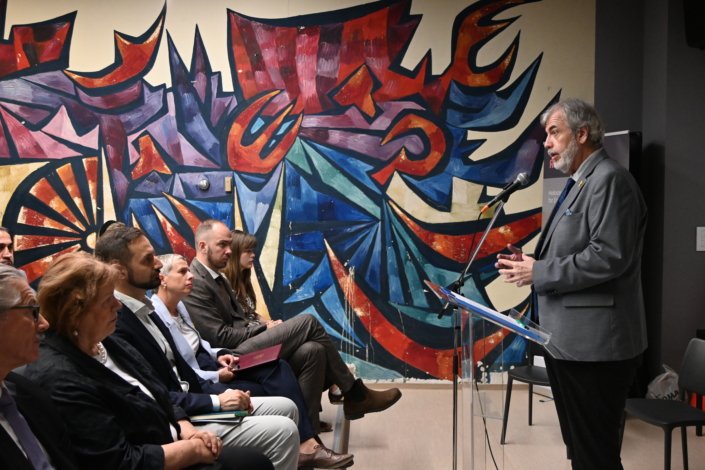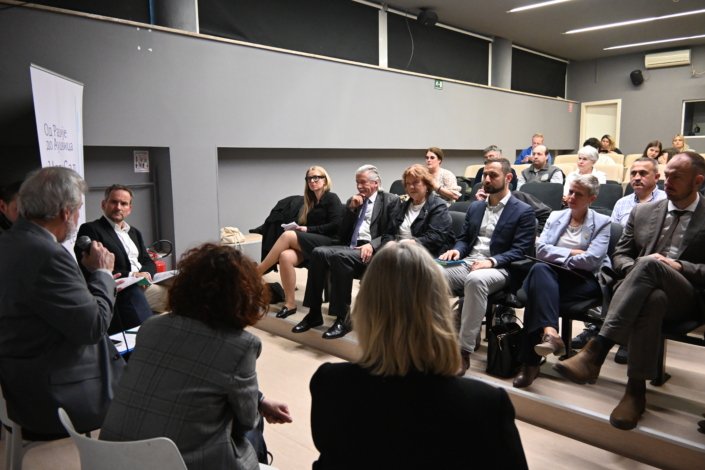Dear Director of the Museum of Vojvodina, esteemed ambassadors, guests from Sweden and the United States, members of the Jewish community, dear citizens and friends, welcome and thank you for being here today.
Today, we have gathered to mark a very important, tragic, and sorrowful day when we remember the deportation of Jews from Novi Sad to death camps. But today, we also commemorate the day that Jews all over the world call Yom HaShoah, the day when we remember the resistance and perseverance of Jews during the Holocaust, exemplified by the Jewish uprising in the Warsaw Ghetto.
During the Holocaust, the population of several thousand Jews from Novi Sad was nearly completely destroyed. In the Novi Sad Raid of 1942, Hungarian fascists killed over 900 Jews. Throughout the entire period of the Hungarian occupation of Bačka, Jews were disenfranchised, mistreated, robbed, expelled, forced into forced labor, and killed.
After German troops occupied Hungary in March 1944, one of the most horrific and monstrous operations of the Holocaust began in April 1944, when, in just eight weeks, around 424,000 Jews from Hungary were deported to Nazi death camps. As part of this logistically complicated and demanding operation, over 565,000 Jews from Hungary and territories under Hungarian occupation were transported and murdered.
Mass arrests of Jews in Novi Sad, as well as across the entire Bačka region, were initiated by German and Hungarian forces in the early hours of April 26, 1944. All members of the Jewish community, including children, women, the elderly, and the sick, were arrested. Virtually the entire Jewish population of Novi Sad was taken to the Novi Sad Synagogue.
In the Synagogue, they were confined from April 26 to April 28, without water, food, or toilets. From there, they were transported to collection camps in Subotica, Baja, and Bačka Topola, where they were sorted and deported by train to Nazi death camps, mostly to Auschwitz. Most were killed in gas chambers immediately upon arrival at the camp. Of the approximately 1,900 Novi Sad Jews deported in April 1944, only about two hundred survived.
After liberation, only a few hundred Jews returned to Novi Sad. Some survived the war as partisans, in exile or hiding, or despite everything, survived the horrors of camps across Europe. A large number of survivors emigrated a few years later, primarily to Israel but also to other countries.
It was extremely difficult to rebuild the life of the Jewish community in Novi Sad. Those who survived and decided to stay in Novi Sad, who found the strength to create new lives, establish families, and rebuild the community, formed the backbone from which the new, young stem of Novi Sad’s Jewish community grew, which we have today.
We thank them for that. We thank them for preserving the traces of Jewish life that have remained a part of our city’s identity, and thus a part of our shared identity as citizens of Novi Sad.
It was not only a tragedy for the Jewish community. It was a loss for all of Novi Sad – for its culture, spirit, and identity.
Therefore, remembering this day is more than just a commemoration. It is an act of civic responsibility.
Today, our memory culture, as well as European memory culture, faces two enormous challenges. One is the unprecedented rise in antisemitism, and the other is the misuse of history for nationalist and populist propaganda.
In recent days, we have seen the focus of this propaganda shift towards distorting and manipulating facts to intensify feelings of frustration and injustice towards the victims, as a means of fueling fear and hatred. In contrast to this trend, we emphasize that the Republic of Serbia has adopted and endorsed the definitions and recommendations of the International Holocaust Remembrance Alliance (IHRA), thereby accepting international standards in Holocaust memorialization and education.
Today, unfortunately, we are witnessing a rise in antisemitism both in Europe and here at home. That is why it is important to develop knowledge and awareness among the youth, in institutions, and in society about the existence of antisemitism and the dangers it represents.
Terraforming is an independent, non-governmental, non-profit organization that does not engage in politics but in nurturing and promoting the culture of memory. One of the core values and messages we spread through our work is that we must not allow ourselves to be passive observers when injustice and violence occur. This is not about politics, but about fulfilling our human, moral, civilizational, and civic duties. We want to clearly emphasize that precisely because we are committed to spreading knowledge about the historical lessons of the Holocaust, Terraforming supports and will always support the demands for establishing the rule of law, democratic governance, free and incorruptible institutions, pluralistic societies, respect for human dignity, civil and human rights, media freedoms, and a society capable of opposing corruption and the misuse of the culture of memory to promote hatred, fear, and nationalist propaganda.
That is why we thank all of you for being here. By your presence, you confirm that memory matters and contribute to a society that will not turn its head when someone’s rights, freedom, or dignity are being taken away.
A special thanks to our partners from Sweden and the United States, as well as to the Jewish community of Novi Sad. I am looking forward to discussing the central theme – an inclusive culture of memory – with the panelists.
Thank you.

